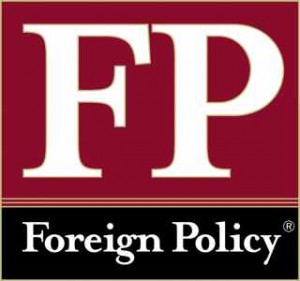Foreign Policy: The billionaire dissident
 He has been stabbed, spied on, and sent to solitary confinement. His oil company assets have been seized by the state, his fortune decimated, his family fractured. And now, after nearly seven years in a Siberian prison camp and a Moscow jail cell, he is back on trial in a Russian courtroom, sitting inside a glass cage and waiting for a new verdict that could keep him in the modern Gulag for much of the rest of his life. Each day, he is on display as if in a museum exhibit, trapped for all to see inside what his son bitterly calls “the freaking aquarium.”
He has been stabbed, spied on, and sent to solitary confinement. His oil company assets have been seized by the state, his fortune decimated, his family fractured. And now, after nearly seven years in a Siberian prison camp and a Moscow jail cell, he is back on trial in a Russian courtroom, sitting inside a glass cage and waiting for a new verdict that could keep him in the modern Gulag for much of the rest of his life. Each day, he is on display as if in a museum exhibit, trapped for all to see inside what his son bitterly calls “the freaking aquarium.”
Mikhail Khodorkovsky was once Russia’s richest man, the most powerful of the oligarchs who emerged in the post-Soviet rush of crony capitalism, and the master of 2 percent of the world’s oil production. Now he is the most prominent prisoner in Vladimir Putin’s Russia, a symbol of the perils of challenging the Kremlin and the author of a regular barrage of fiery epistles about the sorry state of society from his cramped cell. In a country where the public space is a political wasteland, his case and his letters from prison evoke a different age.
“No doubt,” he wrote us from inside the glass cage, “in modern Russia any person who is not a politician but acts against the government’s policies and for ordinary, universally recognized human rights is a dissident.”
The idea of a dissident with overseas bank accounts and an army of lawyers and publicists writing blogs and Twitter feeds on his behalf from safe quarters in London and Washington seems paradoxical. Certainly, it is a long way from the penurious imprisonment and exile of the Soviet-era dissidents who embodied the term, the Andrei Sakharovs and Aleksandr Solzhenitsyns who defied Communist power. Yet in today’s Russia, Putin and his fellow KGB veterans have broken the opposition, marginalized the few survivors of Boris Yeltsin’s epic if flawed revolution, and ensured that no force in society is strong enough to undermine their rule. The most today’s reformers can muster are small protests like the gathering last New Year’s Eve resulting in the arrest of an 82-year-old activist in a snow maiden costume. Open defiance, then, is left to a robber baron with a murky past, a billionaire dissident for a new era in a country that may have shed its Soviet skin but not its autocratic skeleton.
From his glass cage, Khodorkovsky needles the regime every chance he gets, and it has so far proved powerless to stop his pronouncements, smuggled regularly to Russian newspapers, literary figures, and an array of international media. In March, on the one-year anniversary of his latest trial, he called the security-services-dominated “conveyor belt” substituting for a justice system “the gravedigger of modern Russian statehood” and prophesied darkly that “its destruction will occur in the traditional way for Russia, from below and with bloodshed.” His frequent writings even earned him a literary prize this year for his correspondence with famed Russian writer Lyudmila Ulitskaya. His financial battle against the Kremlin is being waged in European courts to the fury of Putin’s advisors, and his imprisonment is a regular irritant in Russian-American relations. U.S. President Barack Obama raised it before visiting Moscow last year, and the State Department’s human rights report in March cited Khodorkovsky among the six Russian political prisoners it identified by name. “The arrest, conviction, and subsequent treatment of Khodorkovskiy,” the report said, “raised concerns about due process and the rule of law.”
But for all that, Khodorkovsky’s voice is largely ignored in Russia today. The media, controlled or intimidated by authorities, give him little attention. The political parties he once funded have been effectively evicted from national politics. Many Russians agree with Putin, who last November compared Khodorkovsky with the mobster Al Capone, suggesting he too was responsible for murders but had to be tried for financial crimes.



